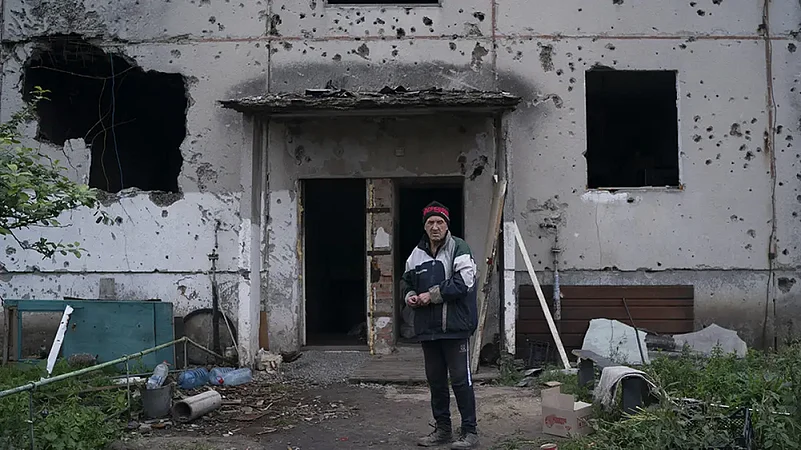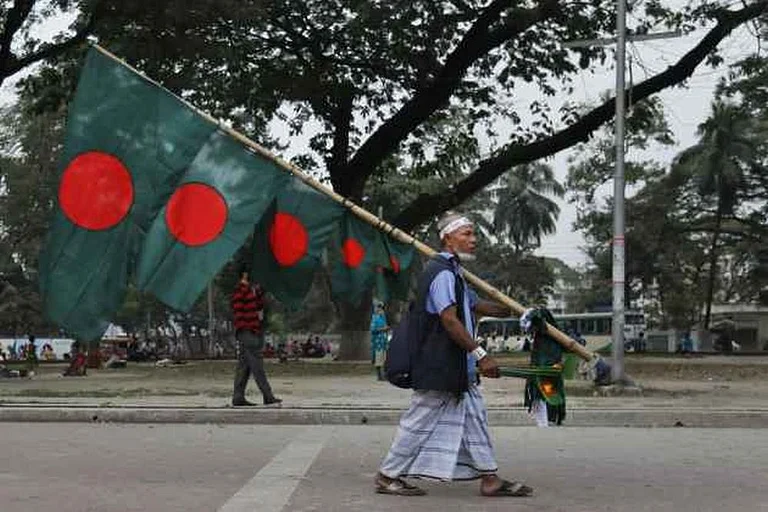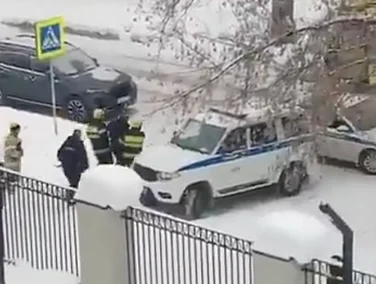The voting in referendums deciding whether to join Russia or not began on Friday in four Russian-held regions of Ukraine.
Ukraine and the West have condemned these referendums as illegitimate attempts to annex these four regions just like Russia annexed Crimea in 2014.
Russia is holding referendums in Luhansk, Kherson and partly Russian-controlled Zaporizhzhia and Donetsk regions. The voting is overseen by Moscow-installed authorities. It is scheduled to conclude on Tuesday. The results are almost certain to be in favour or Russia as voting is expected to be rigged or forced.
Russian election officials planned to bring ballots to people's homes and setting up makeshift polling stations near residential buildings during the first four days of voting, according to Russian-installed officials in the occupied regions, who cited safety reasons.
Polls also opened in Russia, where refugees and other residents of the occupied regions could cast their votes.
Denis Pushilin, the separatist leader of Moscow-backed authorities in the Donetsk region, called the referendum taking place there "a historical milestone".
Vyacheslav Volodin, the speaker of Russia's lower house of parliament, the State Duma, addressed the occupied regions Friday in an online statement, saying: "If you decide to become part of the Russian Federation - we will support you."
Luhansk Governor Serhii Haidai accused Russian officials of taking down the names of people who voted against becoming part of Russia. In online posts, Haidai also alleged that Russian officials threatened to kick down the doors of anyone who didn't want to cast a vote and shared photos of what appeared to be a pair of deserted polling stations.
Ukrainian President Volodymyr Zelenskyy only briefly mentioned the "sham referenda" in his nightly address in which he switched from speaking in Ukrainian to Russian to directly tell Russian citizens they were being "thrown to their deaths".
He said, "You are already accomplices in all these crimes, murders and torture of Ukrainians. Because you were silent. Because you are silent. And now it's time for you to choose. For men in Russia, this is a choice to die or live, to become a cripple or to preserve health. For women in Russia, the choice is to lose their husbands, sons, grandchildren forever, or still try to protect them from death, from war, from one person."
Why is Russia holding referendums?
Russian President Vladimir Putin ordered the invasion of Ukraine on February 24, dubbed as "special military operation".
The referendums are Putin's attempts to legitimise his control and formal annexation of Ukrainian territory.
By declaring that the Ukrainians in these regions have voted to join Russia in voting that's believed to rigged or forced to show pre-determined outcomes, Putin would claim that his military operation is in line with the people's desires and is legitimate.
It would also allow him to further step up war efforts as once he has formally annexed these regions, he would be able to claim that Ukrainian forces are attacking Russian territory and Ukrainian soldiers are on Russian territories. This would allow him to deploy more soldiers and more weapons. Currently, as Putin has not declared the ongoing invasion as a war but as a "special military operation", his ability to deploy soldiers is limited.
UN finds signs of Russian war crimes in Ukraine
The voting takes place against the backdrop of incessant fighting in Ukraine, with Russian and Ukrainian forces exchanging fire as both sides refuse to concede ground.
The governor of the Kharkiv region, which was mostly held by Russian forces before a Ukrainian counteroffensive this month, reported on Friday that 436 bodies have been exhumed from the mass burial site in a forest outside Izium.
Governor Oleh Synyehubov and the region's police chief, Volodymyr Tymoshko, told reporters that three more grave sites were located after the Russians retreated and Ukrainian forces returned.
A team of experts commissioned by the United Nations Human Rights Council (UNHRC) also presented evidence on Friday of potential war crimes, including beatings, electric shocks and forced nudity in Russian detention facilities, and expressed grave concerns about executions the team was working to document in Kharkiv and the regions of Kyiv, Chernihiv and Sumy.
Putin's mobilisation of reservists sparks fears of wider conscription
As the referendums got underway, more men in Russia prepared to join the fight in Ukraine. Russian President Vladimir Putin's ordered a partial mobilisation of reservists on Wednesday that the defense minister said could add about 3,00,000 troops.
In cities across Russia, men hugged their weeping family members before departing as part of the call-up, which has caused fears that a wider draft might follow. Russian anti-war activists planned to stage protests against the mobilization on Saturday.
Fighting continues across frontlines
Ukraine's presidential office said Friday at least 10 civilians were killed and 39 others were wounded by Russian shelling in nine Ukrainian regions over the last 24 hours.
It said that fighting has continued in the Russia-held southern Kherson despite the voting, while Ukrainian forces troops meted out 280 attacks on Russian command posts, munitions depots and weapons in the region.
Heavy fighting also continued in the Donetsk region, where Russian attacks targeted Toretsk and Sloviansk as well as several smaller towns. Russian shelling in Nikopol and Marhanets on the western bank of the Dnieper River resulted in the deaths of two people and the wounding of nine in Marhanets.
Ukrainian Deputy Defense Minister Hanna Malyar said Friday that the country's military casualties could be higher than the 9,000 soldiers reported killed in action because authorities still don't know the exact number of those killed during a three-month seize of the strategic port of Mariupol, which fell to the Russians in May.
Malyar nonetheless claimed that Ukraine's losses were much smaller than those of Russia's. Russian Defense Minister Sergei Shoigu previously reported that 5,937 Russian fighters have died in the war.
(With AP inputs)


























